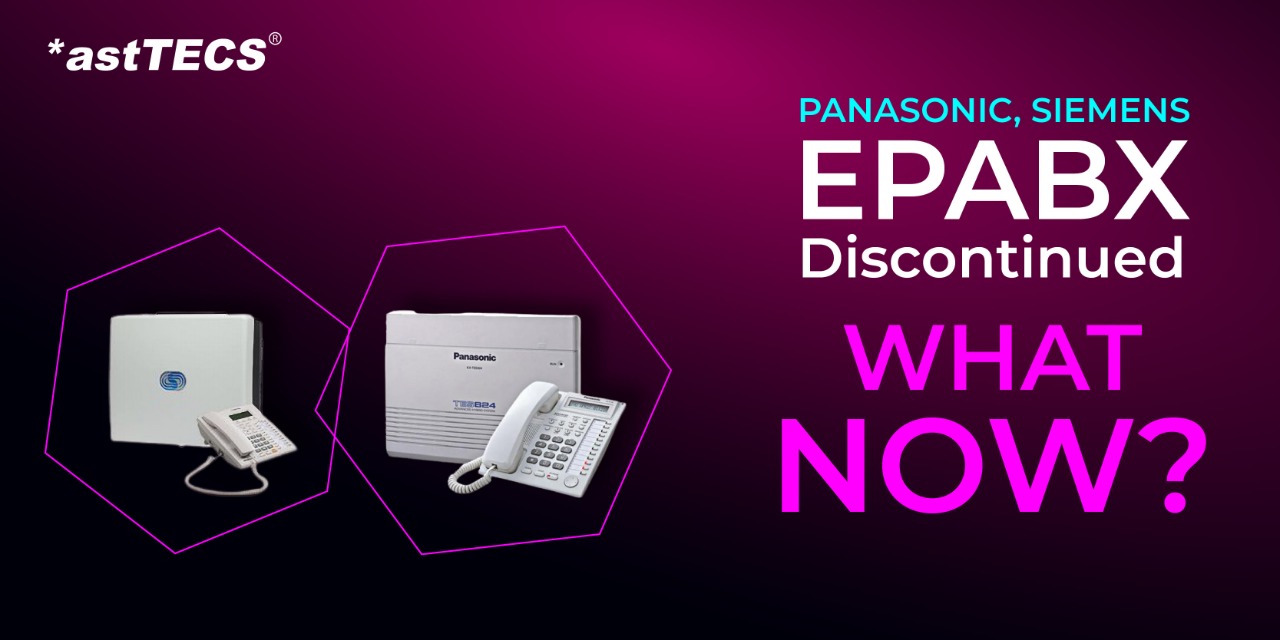Panasonic, Siemens – EPABX Discontinued. What now?
Traditional EPABX manufacturers are shutting their EPABX divisions. Siemens has done 8 years back and now Panasonic is following the suite. Is this the end of EPABX?
Yes and No. EPABX as technology is very inflexible and unable to cope up with the rising demands of new enterprise applications. Therefore, many customers have moved towards IP PBX, premise-based or cloud-based, which is a much-advanced form of EPABX. This resulted in decreased sales and profit margins in the EPABX divisions, which ultimately ended up in closing of these divisions. No, because the advanced form of EPABX, which is the IP PBX has emerged, and will continue for long.
Advantages posed by IP PBX are multifold:
1) IP PBX comes with multiple advanced default features like Voicemail To Email, Muti-Tier IVR, large Voice Recording Storage etc.
2) IP PBX can be deployed in the premises and also on the cloud. This has opened up a multitude of possibilities to the enterprise customers to integrate with their enterprise applications like CRM, ERP, and Collaboration applications like Microsoft Teams.
3) SIP PRIs provided by the Service Providers like Airtel/Vodafone/Jio was one more reason, which led to the decline of EPABX sales. Most of the EPABX does not have the provision to accommodate SIP PRIs and therefore the customers were unable to reap the benefits of this new technology.
What is the way out for customers, who have already invested capital on the EPABX infrastructure?
SIP Gateway: EPABXes can connect to the new SIP PRI lines using this Gateway. For incoming calls, the SIP signals are converted to the EPABX PRI format and also for outgoing calls the EPABX PRI format is converted to SIP format and handed over to the service provider. This solution will help to save the existing investment and also get benefits of the new SIP PRI technology.
SIP Migration Gateway: SIP Migration Gateway includes the functionality of SIP Gateway and the IP PBX. It is possible to continue using the EPABX and for additional extensions use IP extensions or softphone extensions. Obviously, calls can be transferred between EPABX extensions and IP PBX extensions. In addition, the IP extensions can also make use of modern features like ClickToCall or Call Popup from their existing CRMs or emanate and receive calls from their Microsoft Teams Platform. This solution will help to save the existing investment and also get benefits of the new IP technology, including SIP PRI and IP extensions (IP Phone, Softphone, Wifi Mobile Client).
IP PBX: In case, it is time to replace the existing EPABX, there are 2 options – Premise based IP PBX and Cloud-based IP PBX. IP PBX comes with a large set of features – including voicemail, Multilayered IVR, Wifi Mobile Clients, Large Voice Recording Storage. Also, interesting is the integration options with existing CRMs like SalesForce, Zoho, LeadSquare etc or Collaboration platforms like Slack, Microsoft Teams etc. IP PBX is also flexible for customisation requirements specific to the operating business.
The threat posed by discontinuation of the EPABX divisions of these large conglomerates can be mitigated by diligent planning and execution of various migration opportunities listed above. In an era, where a centralised PBX, which is the enterprise lifeline to the outside world, is becoming more and more important, the deployment of the PBX with the most efficient technologies gains utmost importance.
For more details on the Solution Contact our VoIP expert or comment us in below




Suitable system for a small property